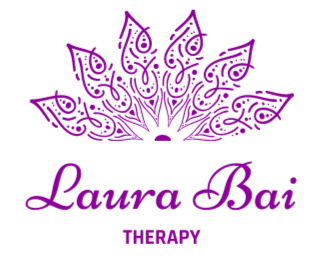
Therapy for Guilt and Shame
In Oakland, CA
When you feel guilty or overwhelmed by shame, these emotions can permeate every aspect of daily life, affecting your relationships, self-worth, and mental health. As a therapist specializing in working with Asian-Americans in Oakland and throughout California, I understand how these feelings can be particularly complex when layered with cultural expectations, family dynamics, and intergenerational patterns.
I provide compassionate therapy that honors your unique background while offering evidence-based care approaches. Whatever keeps you spiraling in guilt and shame, there is a path toward emotional freedom and true self-worth.
Understanding Guilt and Shame: When Emotions Become Overwhelming
While guilt and shame are often discussed together, understanding their differences is crucial for effective healing. When we feel guilt, it typically arises from believing we've done something wrong or violated our own values. Shame, however, goes deeper, attacking our core sense of self and making us feel fundamentally flawed as a person.
Guilt serves an important function by motivating us to make amends and align our future actions with our values. However, when we begin to feel guilt excessively or when shame becomes chronic, these emotions can significantly impact mental health and lead to:
Anxiety and ongoing struggles with worry
Depression and feelings of emptiness
Relationship conflicts and isolation
Chronic stress and burnout
Perfectionism and people-pleasing behaviors
Difficulty setting boundaries
Disconnection from your authentic self
In my work with Asian-American clients, I often see how family expectations intensify guilt and shame. The emphasis on achievement and familial well-being above personal needs creates layers of complexity around these emotions. 1.5 and second generation Asian-Americans often carry the additional burden of feeling caught between honoring their parents' sacrifices and pursuing their own authentic path – a tension that can feel impossible to resolve.
The immigrant experience brings unique challenges: navigating between languages, managing different sets of expectations at home versus work, and sometimes feeling like you don't fully belong in either world. These challenges often manifest as guilt about not being "enough" in either cultural context.

My Specialized Approach to Healing Guilt and Shame
Growing up between cultures myself, I understand how familial expectations and individual autonomy can feel like competing forces. When parents have sacrificed so much to provide opportunities for you, choosing your own path can trigger intense guilt, even when you know it's necessary for your well-being.
I recognize the weight of unspoken family expectations – the pressure to excel academically, choose prestigious careers, marry within cultural guidelines, and provide for aging parents. These expectations, while born from love and hope, can create patterns of guilt and shame that feel inescapable.
I use several evidence-based therapeutic approaches that work together to address guilt and shame, tailoring my care to your specific needs, cultural background, and healing goals:
Attachment-Focused EMDR
Attachment-Focused EMDR (Eye Movement Desensitization and Reprocessing) is a specialized form of EMDR that addresses the deeper roots of guilt and shame. Many of these emotions stem from early experiences or traumatic events that shaped our sense of self and worthiness. When a person has experienced trauma, trauma-related guilt and shame often develop and feel impossible to shake.
Through AF-EMDR, I help you process these foundational experiences, allowing your nervous system to release stored trauma and develop new, healthier neural pathways. This approach is particularly effective for addressing intergenerational trauma – the pain and survival strategies passed down through families who have endured war, displacement, poverty, or persecution.
Somatic Therapy
Guilt and shame don't just live in our minds – they're stored in our bodies as tension, disconnection, and protective patterns. Through somatic therapy, I help you develop awareness of how these emotions manifest physically and learn to work with your body's natural healing capacity.
When a person feels guilt or shame, their body often holds these emotions in specific ways that can lead to chronic stress and physical symptoms. Many Asian-American clients I work with have learned to disconnect from their bodies, focusing on intellectual achievement while suppressing emotional and physical needs – a survival strategy that served them in demanding environments but now creates distance from their own experience.
We explore how guilt and shame show up as muscle tension, shallow breathing, and depleted energy, helping you discharge stored emotions and develop a more compassionate relationship with yourself.
Family and Couples Therapy
When guilt and shame stem from family dynamics or relationship conflicts, working with the whole relationship system can be transformative. I offer both couples and family therapy to address these issues at their source, helping all members develop healthier communication and relational patterns.
Often, when one person feels guilt or shame, it reflects broader patterns within the family system that need attention. Immigrant families face unique stressors: parents working multiple jobs, children serving as cultural translators, different generations adapting at different paces, and everyone managing the stress of belonging in a new culture while maintaining connection to their heritage.
Through talking openly about these dynamics, families can learn to support each other without creating feelings of guilt or shame. We address how cultural values like respect for elders can coexist with individual autonomy, and how families can maintain closeness while allowing each member to grow and change.
Parts Work
Parts work recognizes that we all have different aspects of ourselves – some that carry guilt and shame, others that try to protect us from these emotions. When we experience chronic guilt and shame, there's often a part of us carrying unresolved trauma that leads us to believe we’re fundamentally wrong or bad. I can support you to heal the trauma at the root of these beliefs.
Parts work is particularly helpful for Asian-American clients who often feel torn between different cultural identities. There might be the part of you that wants to honor your parents' dreams, the part that wants to forge your own path, the part that fears disappointing your family, and the part that feels angry about the pressure. Rather than seeing these as contradictions, we explore how each part developed to help you navigate complex cultural expectations.
We work to help these different parts of yourself communicate with each other rather than fighting internal battles that leave you feeling exhausted and guilty no matter what you choose.
Who I Work With: Understanding Your Experience
I specialize in working with high-achieving Asian-American adults seeking therapy that understands their unique cultural context. My clients are often 1.5 or second generation Asian-Americans who feel the weight of being bridges between their parents' world and American culture.
You might recognize yourself in these struggles:
Cultural and Identity Navigation:
Feeling caught between honoring family sacrifices and pursuing personal fulfillment
Guilt about setting boundaries with parents or extended family
Pressure to represent your family or culture "perfectly" in professional settings
Struggling with dating choices that conflict with family expectations
Shame due to feeling like you're never "enough" in either cultural context
Emotional and Mental Health Patterns:
Anxiety that stems from fear of disappointing others
Depression that feels like carrying the weight of multiple generations
Perfectionism that drives achievement but destroys peace of mind
Disconnection from your own emotions and needs
Burnout from constantly managing everyone else's expectations
People-pleasing that leaves you feeling invisible in your own life
Relationship Challenges:
Difficulty expressing your needs without feeling selfish
Fear of conflict that leads to avoiding important conversations
Patterns of caretaking everyone else's emotions
Struggling to maintain relationships while honoring family expectations
The Healing Power of Self-Compassion and Cultural Integration
Self-compassion is perhaps the most powerful antidote to excessive guilt and shame. When conditioned to feel guilty for having personal needs or making mistakes, developing self-compassion requires patience and practice. I teach clients three components of self-compassion: self-kindness instead of self-judgment, recognizing shared human experience instead of isolation, and mindfulness instead of over-identification with difficult emotions.
Many Asian-American clients have learned that self-criticism is necessary for motivation, making self-compassion feel foreign or even wrong. Cultural messages about humility and self-improvement can make treating yourself with kindness feel like giving up on growth. Through therapy, you will learn that self-compassion actually creates the emotional safety needed for genuine change.
The journey involves learning to hold both your individual needs and your cultural values, finding ways to honor your heritage while also honoring your personal truth. This isn't about choosing one over the other, but about creating space for both to coexist.

What to Expect: Your Journey to Healing
Initial Consultation and Assessment
I offer a free 20-minute consultation where we can discuss your specific concerns and determine if we're a good fit for working together. During this time, you can share what's bringing you to therapy and ask any questions about my approach.
Getting to Know Each Other
In our first session, we'll get to know each other, explore your current struggles, and begin to understand your history and cultural context. I listen to your story and begin to understand how family dynamics, cultural influences, and early and recent experiences have contributed to feelings of guilt and shame.
Creating Your Support Plan
We'll work together to identify specific goals for therapy and develop a support plan that feels right for you. Rather than imposing a rigid structure, we'll collaborate on what healing looks like for you specifically, taking into account your values, experiences, and aspirations.
Ongoing Therapy Process
Appointments are generally scheduled at a consistent weekly or bi-weekly time and can be online or in-person in Oakland and throughout California. Sometimes there may be practices or reflections to support your healing between sessions. Together, we’ll process unresolved trauma, explore and bring change to the beliefs leading to chronic guilt and shame, and build healthier self-worth.
Areas We'll Address Through Our Work Together
Through our collaborative care, you can expect to:
Reduce guilt and develop a healthier relationship with these emotions
Learn to experience guilt without being overwhelmed by it
Develop self-compassion while maintaining your values
Improve your relationships and communication skills
Process trauma-related guilt and intergenerational trauma
Build strategies for managing anxiety, depression, and stress
Create boundaries that honor both relational and personal needs
Navigate identity challenges with greater ease and confidence
Working with Perfectionism and Achievement Pressure
Many of my clients struggle with perfectionism rooted in family expectations and cultural pressures. When a person believes they must be perfect, even small errors can trigger intense feelings of guilt and shame. The pressure to be perfect in all aspects of life creates impossible standards.
This perfectionism often stems from understanding, even as children, that your parents sacrificed so much for your opportunities. The weight of their dreams and hopes can feel overwhelming, making your own mistakes feel like betrayals of their sacrifice. It can also come from a highly critical family environment where making mistakes was unacceptable.
Through therapy, we explore the difference between healthy striving and perfectionism. You'll learn to see mistakes as opportunities for growth rather than evidence that you're wrong, which helps reduce guilt and shame significantly. We work together to develop more flexible standards that honor your values while allowing for imperfection.
The goal isn't to stop caring about excellence, but to pursue your goals from a place of self-compassion rather than fear of disappointing others.
Healing Relationships and Building Authentic Connections
Guilt and shame often create barriers to intimacy and authentic connection. When we consistently feel guilty about our needs or emotions, we struggle to form healthy relationships that feel genuine rather than performative. When we feel shame and question our own worth, we feel undeserving of love and unable to be our authentic selves in relationships.
Through therapy, you will build awareness of and start to have self-compassion for these struggles. You will learn to gradually share more of your authentic self with trusted others. This includes learning to distinguish between people who can hold your full humanity and those who need you to stay in a more limited role.
As you become more emotionally authentic, your relationships often deepen and become more satisfying. You learn that healthy relationships can actually help reduce guilt and shame by providing environments where you feel accepted for who you truly are, not just what you achieve or how well you perform
Addressing Intergenerational Patterns and Family Healing
One of the most profound aspects of healing guilt and shame involves understanding and processing intergenerational trauma. Many of the emotional struggles you carry didn't originate with you – they were passed down through family lines that survived war, poverty, displacement, and cultural suppression.
Your grandparents or parents may have learned that emotional expression was dangerous, that individual needs were selfish, or that survival required constant vigilance and self-sacrifice. These survival strategies, while necessary for their circumstances, can become sources of guilt and shame when they no longer serve your current life.
We explore these inherited patterns with deep respect for what your family endured while also recognizing that you have the right to heal and grow beyond survival mode. This isn't about blaming previous generations, but about understanding the context of their choices so you can make conscious decisions about what to carry forward and what to transform.
You honor yourself, your family, and your ancestors when you heal the intergenerational trauma underlying feelings of guilt and shame, and truly accept and celebrate your authentic self.
When Professional Support Makes a Difference
Consider reaching out for therapy if you're experiencing:
Persistent feelings of guilt or shame that interfere with daily life
Chronic anxiety or depression related to low self-esteem and self-worth
Relationship conflicts that seem to repeat despite your efforts
Difficulty enjoying achievements or feeling like you're never doing enough
Burnout from constantly managing multiple external expectations
Ongoing impact from intergenerational trauma or difficult immigration experiences
Struggles with perfectionism that interfere with your well-being
Feeling disconnected from your authentic self or emotions
Seeking therapy is a sign of wisdom and self-awareness. In my experience working with Asian-Americans, I've witnessed profound transformations as people learn to honor both their cultural heritage and their individual truth.

Begin Your Healing Journey Today
Healing from guilt and shame is possible, and you don't have to navigate this journey alone. I offer a warm environment where you can explore these emotions safely, understanding the individual and cultural context that shape your experience.
Together, we'll work to understand the unique factors contributing to your experience and develop personalized strategies for healing that honor both your individual needs and cultural background. The goal isn't to eliminate all feelings of guilt – these emotions can serve important functions when they're proportionate and helpful. Instead, we work toward developing a healthier relationship with these feelings, one where they inform but don't control your choices and self-perception.
Your healing journey is unique, and transformation takes time. You deserve to live authentically, maintaining connection to your roots while also honoring your individual path. With the right support and commitment to healing, you can break free from chronic guilt and shame and step into a more compassionate relationship with yourself.
Ready to take the first step? Contact me today to schedule your free 20-minute consultation, and let's explore how therapy can support your path toward emotional freedom. You deserve care that understands your full experience – both the challenges and the profound strength that comes from navigating between worlds.









